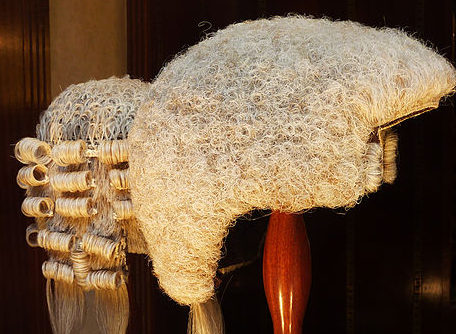25 April 2019
Blame
The Victims Sacrificed
by Simon Baseley
 Crimewatch Live is a daytime TV show which homes in on various aspects of police work as well as providing a platform from which members of the public are invited to assist with solving crimes. This latter usually involves a short reconstruction aided by whatever CCTV footage is to hand. The events are summarised by an investigating officer who will then appeal for the viewers’ help in tracing the miscreants. A recent case concerned the rape of a young woman. One hesitates to call the case typical, but typical or not the events described were all too familiar. The young woman was a student new to the city. She had gone out with friends and having become separated from them was then followed by a man who, having manhandled her into a park, carried out the offence. What was striking about this horrible event was the presenter’s description of the woman as “vulnerable”. CCTV footage seemed to hint, from the young woman’s gait and behaviour, that she was drunk or under the influence of drugs. Now, quite possibly the BBC did not know if this was the case, but its choice of the word ‘vulnerable’ may have reflected more than simple uncertainty about the way in which the young woman had become vulnerable; any suggestion of intoxication, for example, would have implied some sort of judgement being made upon her, with the likely result that viewers would be less sympathetic to her plight.
Crimewatch Live is a daytime TV show which homes in on various aspects of police work as well as providing a platform from which members of the public are invited to assist with solving crimes. This latter usually involves a short reconstruction aided by whatever CCTV footage is to hand. The events are summarised by an investigating officer who will then appeal for the viewers’ help in tracing the miscreants. A recent case concerned the rape of a young woman. One hesitates to call the case typical, but typical or not the events described were all too familiar. The young woman was a student new to the city. She had gone out with friends and having become separated from them was then followed by a man who, having manhandled her into a park, carried out the offence. What was striking about this horrible event was the presenter’s description of the woman as “vulnerable”. CCTV footage seemed to hint, from the young woman’s gait and behaviour, that she was drunk or under the influence of drugs. Now, quite possibly the BBC did not know if this was the case, but its choice of the word ‘vulnerable’ may have reflected more than simple uncertainty about the way in which the young woman had become vulnerable; any suggestion of intoxication, for example, would have implied some sort of judgement being made upon her, with the likely result that viewers would be less sympathetic to her plight.
This all fits with the argument – strongly put by feminists, that to do otherwise would be to indulge in ‘victim shaming’ and, so the argument goes, discourage future and past victims of sexual assault from coming forward for fear of being held responsible for what has happened to them. In this debate – as in others – language is seen as the key to controlling the agenda. And in this case the agenda is that a woman should be free to behave as she wishes and that it is up to everyone to educate men to respect that and, where they do not, to provide deterrents to protect women from them. This is a reasonable aim, but it is absurd to think that the changes it demands can be accomplished overnight. We might all wish that there were no violent sexual predators, but our wishes are not reality. Sexual predators are a fact of life. It is at this juncture in the debate that one comes up against the rigid orthodoxy of many feminists: an orthodoxy that brooks no suggestion that young women especially should take any precautions or alter their behaviour in any way in order to avoid the sort of outcome experienced by the young woman featured in the video. Those who argue otherwise are quickly submerged in at best angry denunciation and at worse a storm of personal abuse.
Senior female judge Lindsay Kushner QC knows all about that. When retiring from the bench two years ago, Kushner, who had presided over many rape trials during a distinguished career, observed that whilst women were in her words “entitled to drink themselves into the ground” the resulting “disinhibited behaviour” could put them in danger. As she jailed for six years a man who had raped a girl he met in a Burger King in Manchester city centre, Judge Kushner said: “As a woman judge it has been remiss of me not to beg women to protect themselves from predatory men who ‘gravitate’ towards drunken females. There is absolutely no excuse and a woman can do with her body what she wants and a man will have to adjust his behaviour accordingly, but I do not think it’s wrong for a judge to beg women to take actions to protect themselves”.
All too predictably her comments were condemned by feminists. Here’s what Yvonne Traynor, chief executive of Rape Crisis South East, had to say: “As a judge and a woman she should know better. The only person who is responsible for rape, is the rapist. Women are yet again being blamed for rape.”
Rachel Krys, co-director of End Violence Against Women Coalition, said: “What this judge is saying is exactly the kind of thing that deters women from reporting assaults. Women understandably think that they will not be believed, or will be blamed for their own attack if they’ve had a drink.”
Vera Baird, a former solicitor general and ex-defence barrister, said the judge should “have given advice to help women stay safe instead of implying it’s your fault for having attracted him in the first place”. She added: “When somebody is raped they feel guilt and shame and they find it very hard to report it. If a judge has just said to them ‘Well, if you drank you are more likely to get raped, we are not likely to believe you and you have been disinhibited so you’ve rather brought it on yourself’ then that guilt is just going to get worse.”
Kushner is not the only judge to have made the point she did and other figures who have spoken in the same way have similarly found themselves under attack. But the argument that the advice to be aware of the risks that a young woman can run when drunk and on her own in a public place, will then be interpreted by victims as blame should something befall them, seems uniquely associated with this one area of women and their social behaviour. For example, it is well known that a woman who has regular screening and takes advice regarding lifestyle choices such as diet and drinking, reduces her risk of contracting cervical cancer. When a medical professional uses a public platform, as is often the case, to warn women of the risks involved in ignoring this advice, they are not then buried under a storm of protest claiming that they have blamed victims of cervical cancer, for bringing it on themselves and thereby discouraged other women who may have the disease from coming forward.
All this invites one to question why otherwise intelligent feminists argue so vehemently against warning young women to be careful when drinking. Well, I am guessing that’s because such warnings cut right through a central pillar of feminist thinking which argues that a woman may do anything that a man may do, go anywhere without fear and be free to enjoy the world unrestricted by anything other than the laws that apply to us all. If that is so, then the subtext is an acceptance that along the way there will be casualties; casualties who but for want of sound advice and guidance might have avoided their plight.
The Crimewatch commentary’s use of the word ‘vulnerable’ may or may not have been employed in order to avoid creating an atmosphere of judgement, but whatever the reason it was accurate. All women and especially young women are vulnerable to the unwanted attentions of some men and it seems that we are not making a very good job of changing that. There is no disputing that the risk to women is increased in certain situations, but the howls of outrage which now greet any attempt by public figures or others to emphasise the need for care in those situations, is producing the most tragic and absurd of outcomes; one in which in order to create an atmosphere in which victims of sexual crime are happy to come forward, feminist intransigence fosters a situation which is more or less certain to produce more such victims.


